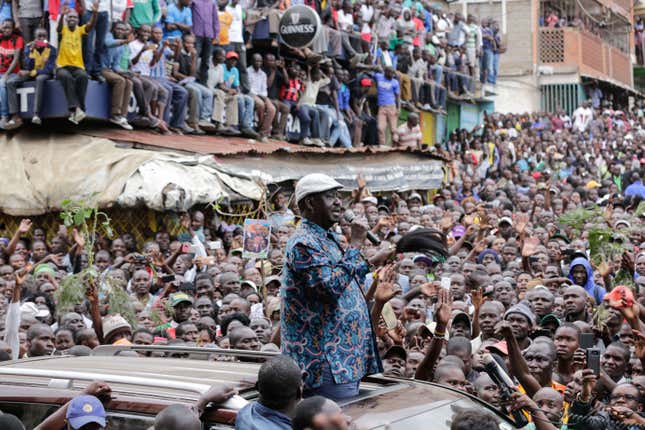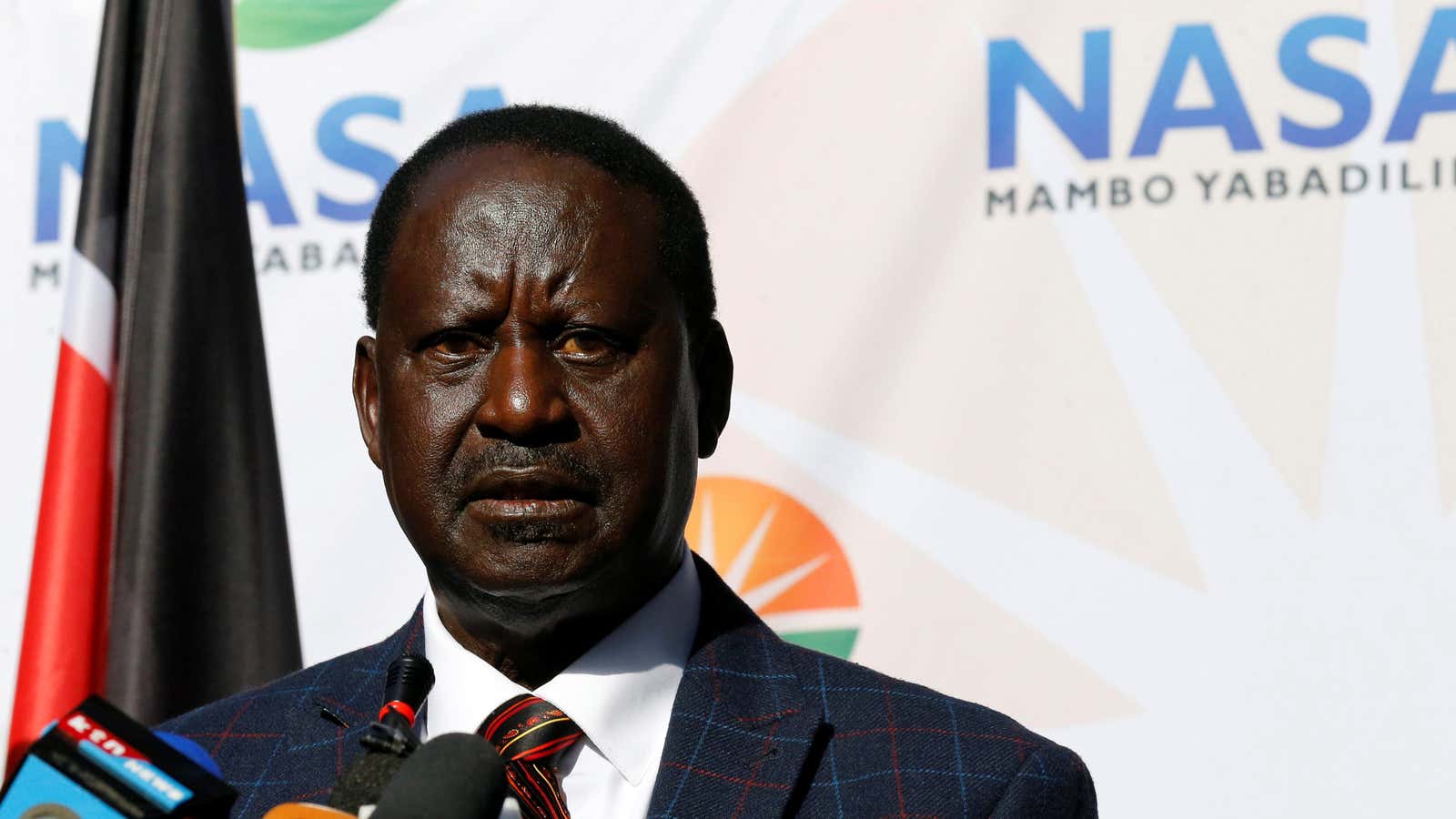Kenya’s opposition leader Raila Odinga said he will challenge the results of the general election at the Supreme Court, standing by his claims that the electoral system was hacked and the results rigged in president Uhuru Kenyatta’s favor. In a press conference in the capital Nairobi, Odinga questioned the electoral commission’s tallying process, and termed Kenyatta’s re-election as “null and void.”
“We have now decided to move to the Supreme Court and lay before the world the making of a computer generated leadership,” Odinga, flanked by members of his NASA coalition, said.
In the much-anticipated speech, Raila condemned the government’s heavy-handed response to opposition protesters and the recent closure of civil and human rights organizations. Kenyans, he added,”are being told not to protest against a leader they believe is being imposed on them through computer-generated fraud,” Odinga said. “We refuse to sit and watch Jubilee turn our country into a banana republic and a playground.”
More than 15 million Kenyans voted in the Aug. 8 polls, delivering a resounding victory for president Uhuru Kenyatta who won by over 54% to Odinga’s 44.7%. But as the results started trickling in on the evening of the vote, Raila and his NASA coalition held a press conference at 2 am in the morning calling the results “fake” and “fictitious.” They later claimed that the voting system was hacked in the president’s favor, and called it an “attack on our democracy.”
The commission denied the results were hacked. Both local and international observers also chimed in, saying the voting process was conducted fairly and that they hadn’t witnessed any signs of manipulation.
After Kenyatta was declared the winner on Friday (Aug. 11), protests engulfed opposition strongholds in Nairobi and Kisumu in western Kenya. At least 28 people were shot dead and dozens more wounded, according to human rights observers, including a 10-year-old girl who was killed in Mathare slum in Nairobi while she was on the balcony of her parents’ home.
After a tense night across the nation, Odinga came out on Sunday (Aug. 13) to address his supporters, urging them to mourn the dead and not go to work on Monday. That call was largely ignored by Kenyans—including some of his supporters—as businesses slowly reopened. On social media networks, some used the hashtag #TurudiKaziniChallenge—Swahili for ‘Let’s go back to work challenge’—to show how they were returning to work.

Since stepping into the public eye in the 1980s, the 72-year-old Odinga has been a significant figure in Kenya’s modern political life. Odinga, popularly known as Baba or ‘father’ among his supporters, also ran for president four times—but without success. He first ran for president in 1997 against Kenya’s second president Daniel arap Moi. He also ran in the 2007 polls against former president Mwai Kibaki but went on to serve as prime minister following the unity government that was created following the disputed poll. In 2013, he faced off with Kenyatta and lost. After he challenged the results in court, the Supreme Court upheld Kenyatta’s win.
In his speech on Wednesday (Aug. 16), Odinga called on Kenyans to exercise civil disobedience and for “all African democrats” to show solidarity with Kenyans. “We shall hold vigils, moments of silence, beat drums and do everything else to peacefully draw attention to the gross electoral injustices being meted on our country,” Odinga said. “We will not accept and move on.”
